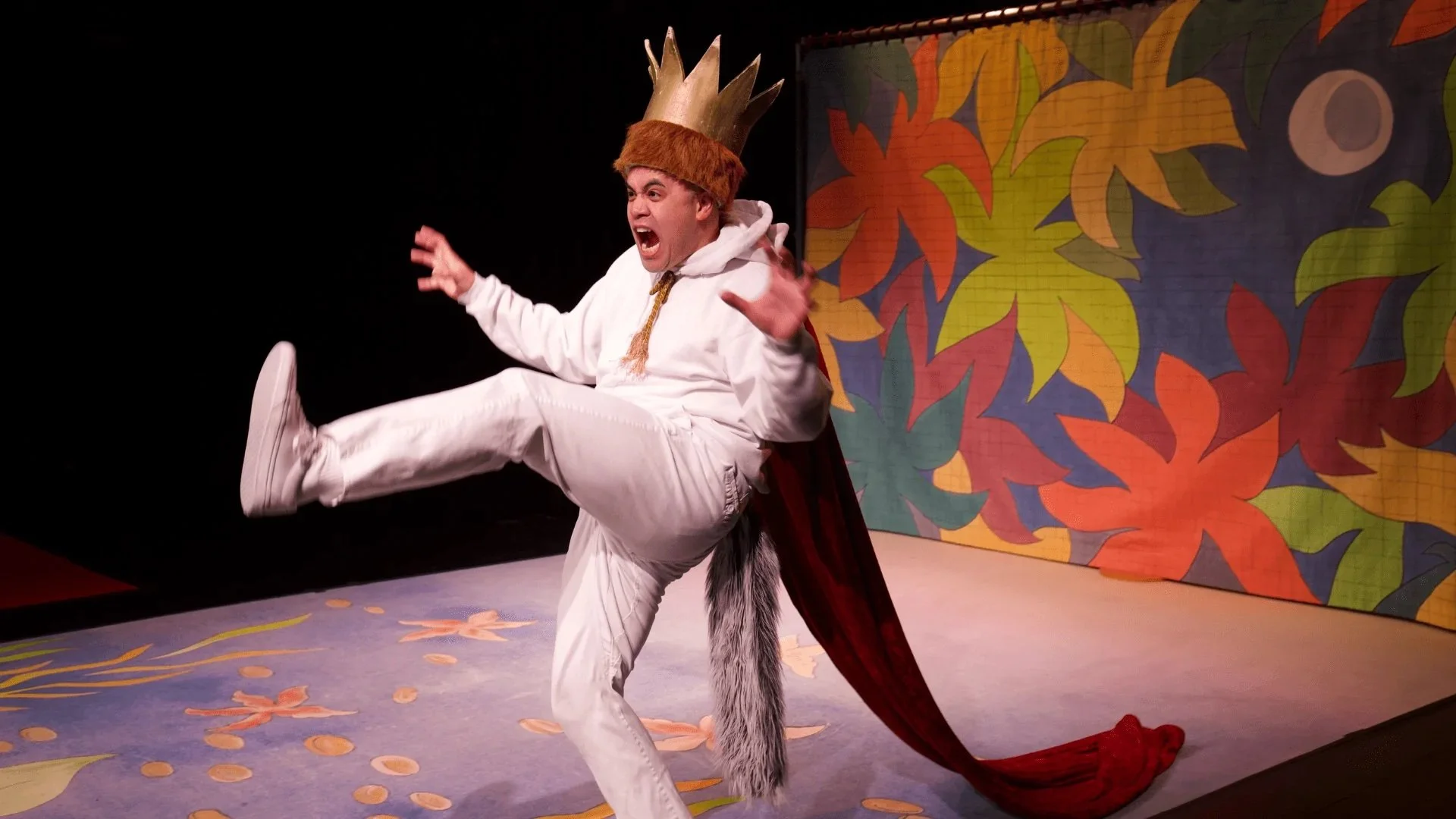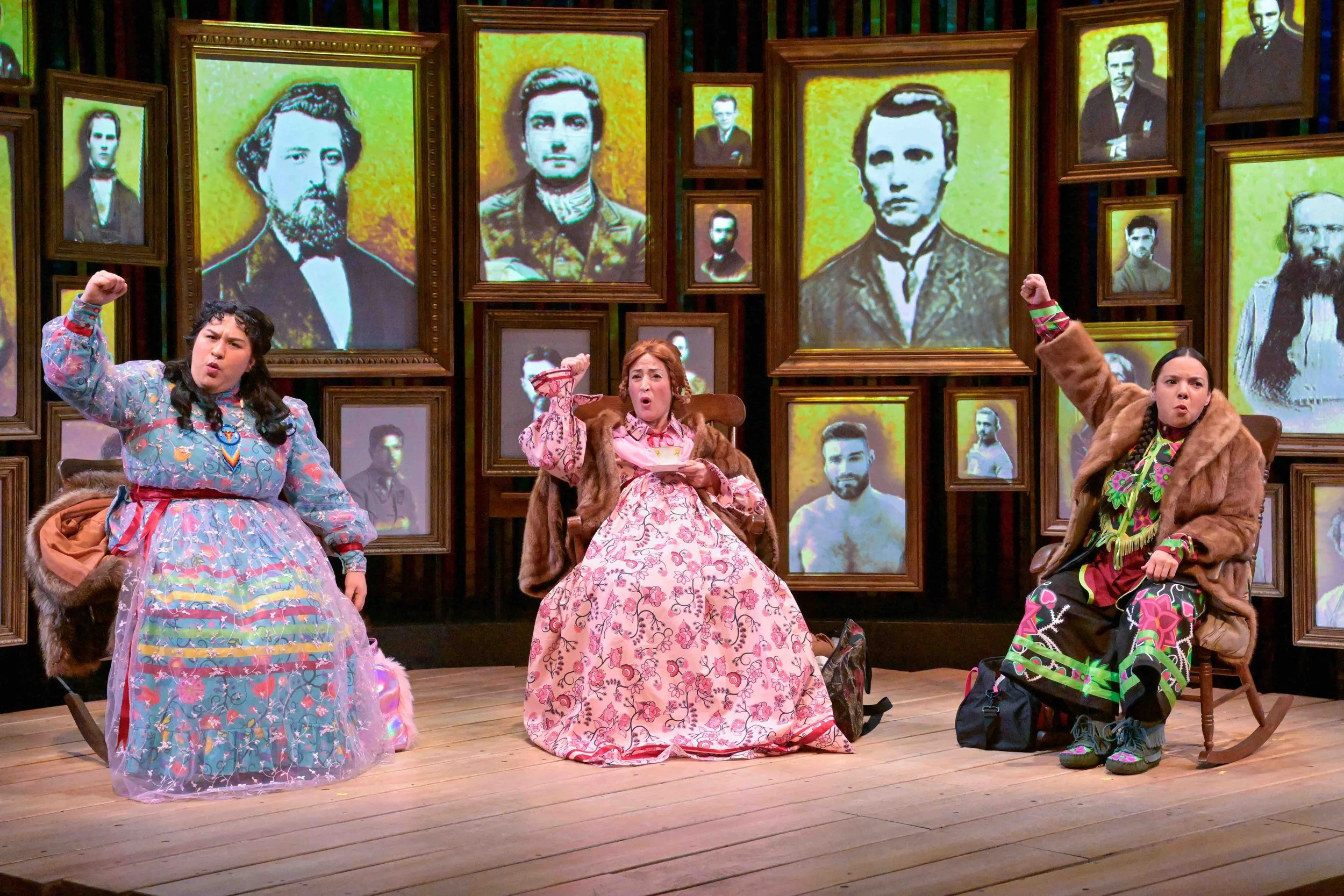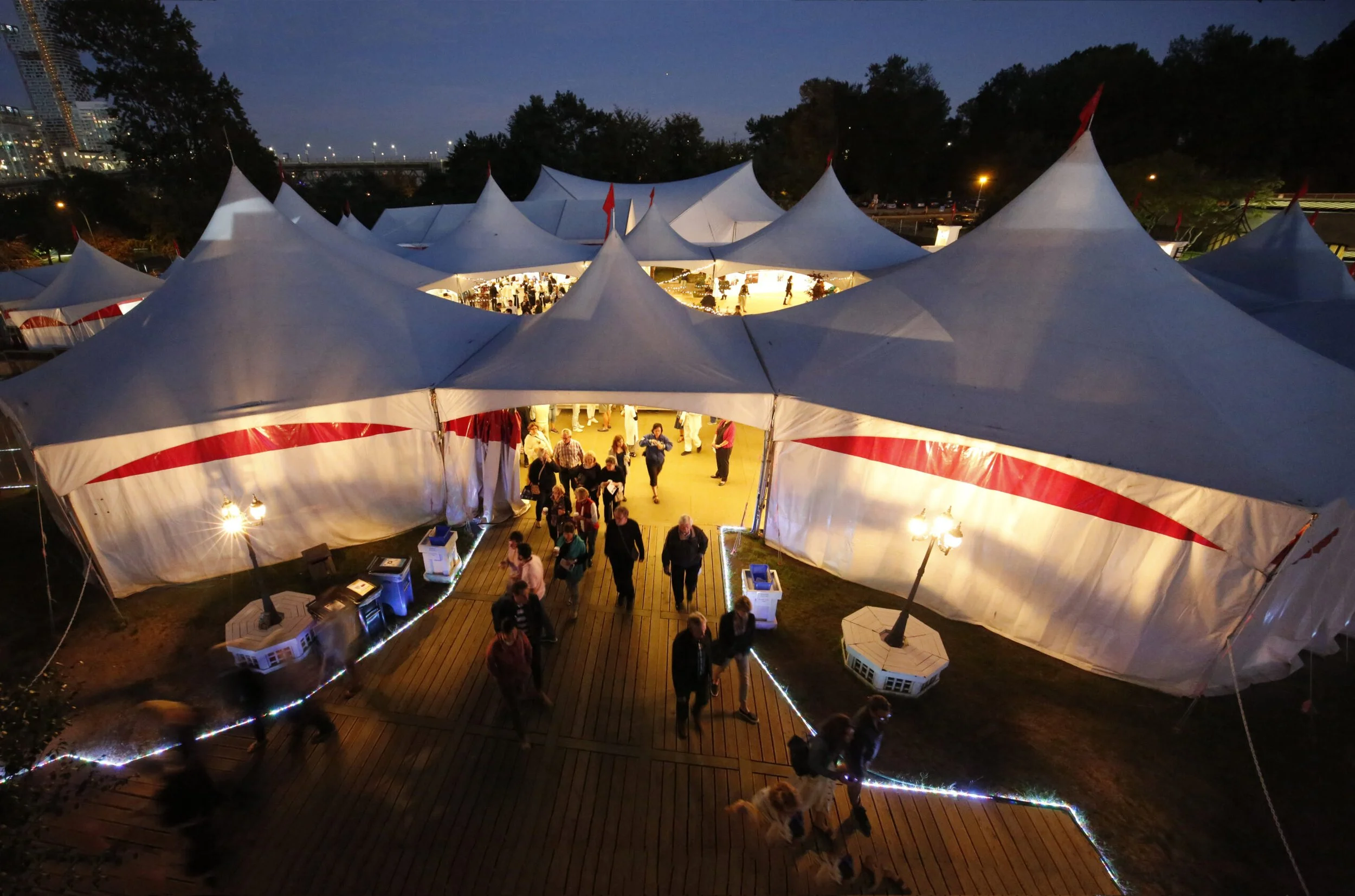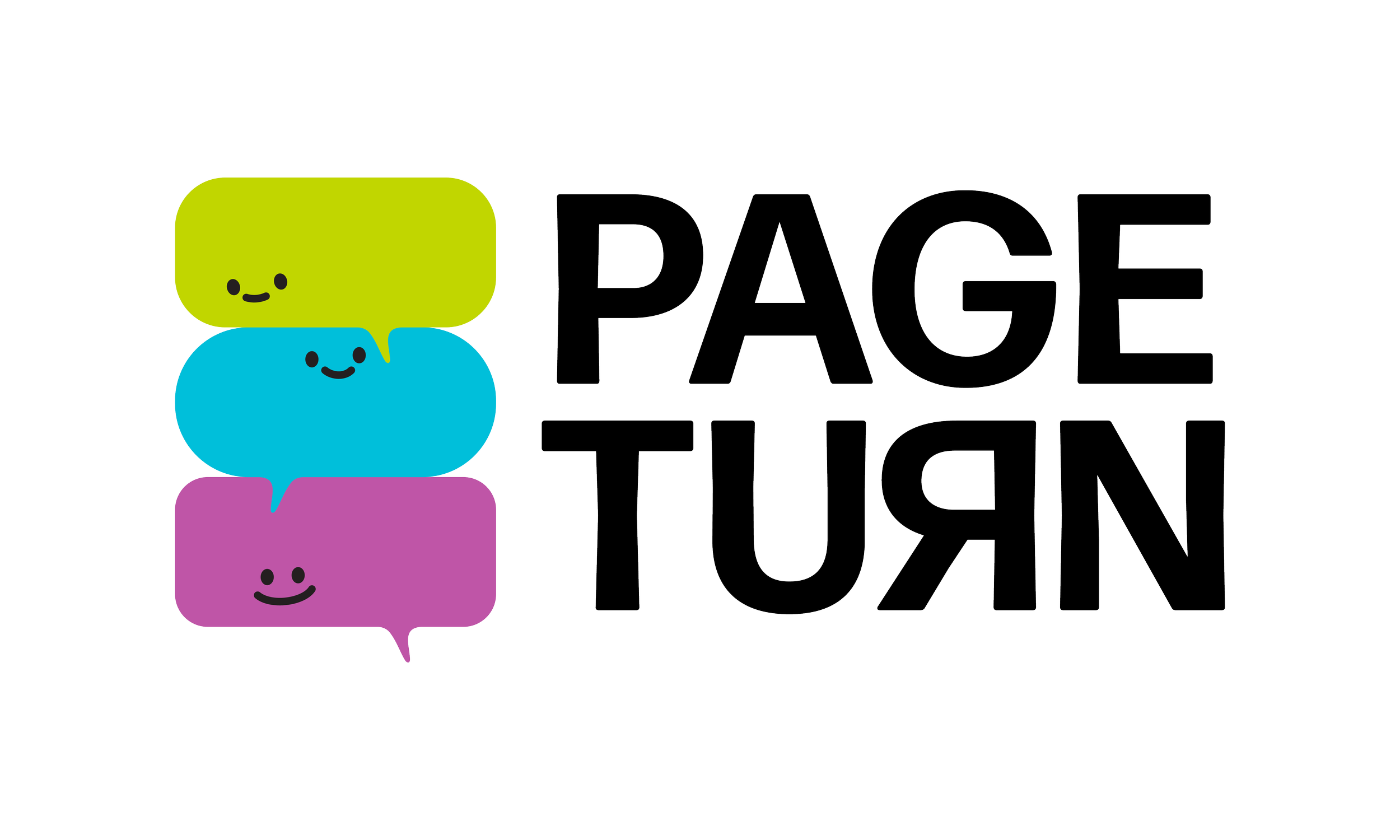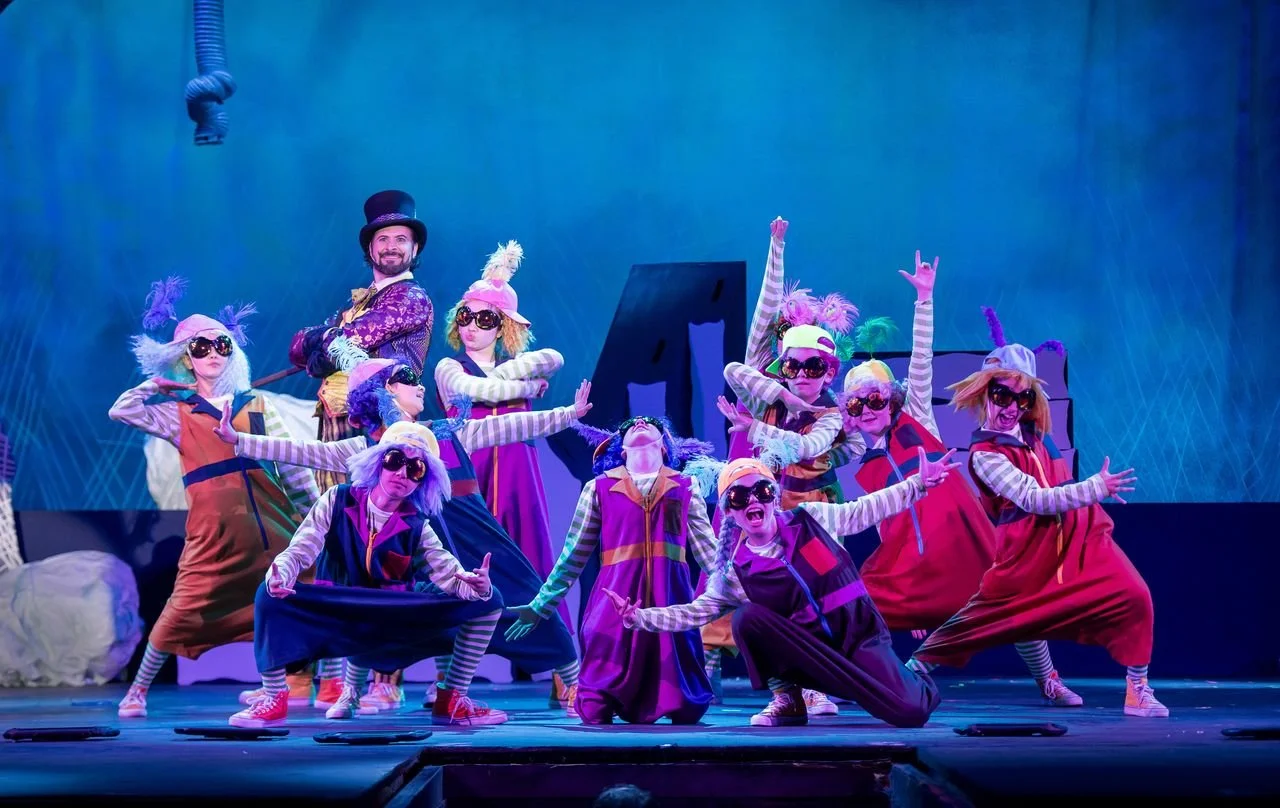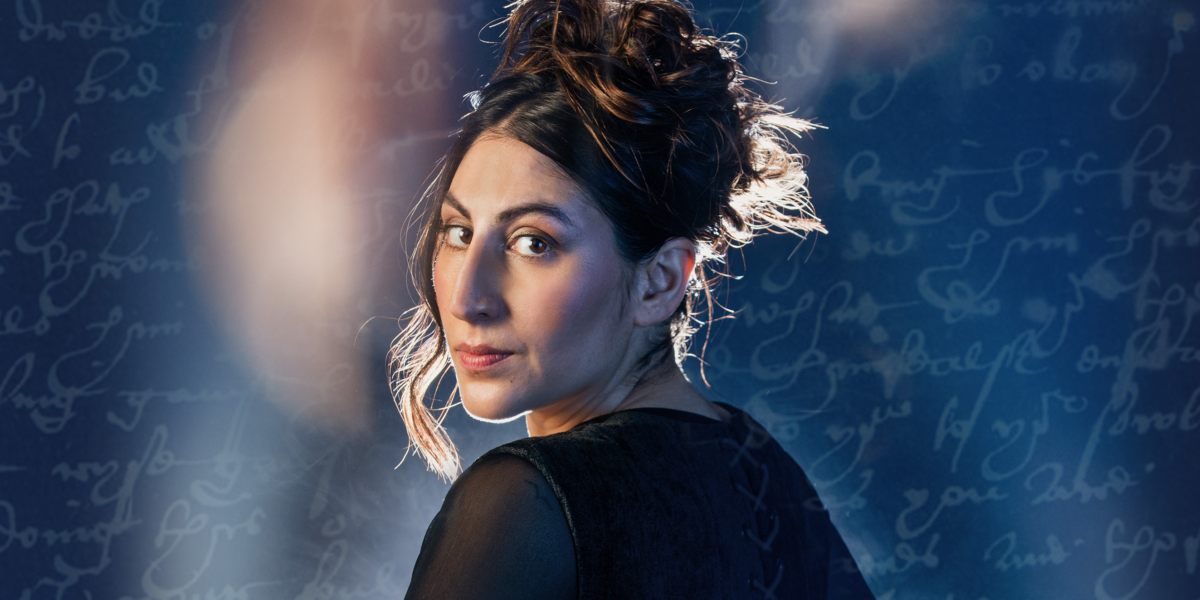In Meeting, sex and love addicts engage in tough conversations about trauma and abuse
Playwright Katherine Gauthier’s fly-on-the-wall production at Pacific Theatre follows five people in a group therapy session as they exchange intimate thoughts
(From left) Carmela Sison, Sebastien Archibald, Kaitlin Williams, Christopher Lam, and Marcus Youssef in Meeting. Photo by Chelsey Stuyt
ITSAZOO Productions, in association with Pacific Theatre, presents Meeting in the Chalmers activity room at Pacific Theatre from May 14 to June 7
AS A SOCIETY, how do we define the term sexual health?
A thorough Google search suggests that the answer is more complicated than we might think. The World Health Organization describes it as “a state of physical, emotional, mental and social wellbeing in relation to sexuality”, adding that “it is not merely the absence of disease, dysfunction or infirmity”. Vancouver-based provider Options for Sexual Health says its meaning “will be different for each person”. Even Chatelaine magazine asks its readers to “let it be a flexible concept”.
Playwright Katherine Gauthier approaches the topic unflinchingly through her new play Meeting, in which a sex addict, a love addict, a porn addict, a codependent, and a sexual anorexic sit down in a circle for an exchange of honest conversation at a group-therapy session.
“I was really fascinated by the notions of these love and sex addicts,” Gauthier tells Stir by phone before the production’s premiere. “With something like heroin addiction, it’s very clear to be able to just say ‘That’s wrong’ or ‘You should just abstain.’ But with things like sex and love, the navigation of what healthy sex or healthy love looks like, I think, is a lot more complicated.
“We don’t expect a love addict to never love again,” she continues. “But what constitutes a love addict? You know, we kind of celebrate the hopeless romantic in our culture. We watch movies about people overcoming great obstacles to find the great loves of their lives, and we think, ‘Go for it! Run through the airport in spite of all the obstacles, and find the one you love!’ And so I sort of was like, ‘What is healthy love?’ And what do we do with these people who are saying that the way that they love or have sex is destroying them?”
Meeting is presented by ITSAZOO Productions and Pacific Theatre inside the latter’s intimate Chalmers activity room, which will seat an audience of just about 40 people each night in a fly-on-the-wall viewing style. The meeting members all come from different walks of life; the love addict is a civil lawyer, for instance, while the sexual anorexic works at a liquor store. This allows for balanced conversations around stigma and the intersections of trauma when one group member’s revelation tests the limits of the others’ acceptance.
Meeting is informed by Gauthier’s studies in psychology and her own personal experience as a survivor of sexual abuse. Born in Kingston, raised in Ottawa, and now based in Toronto, the accomplished artist has performed with such companies as the Shaw Festival and Soulpepper Theatre in her home province, and the Arts Club Theatre Company and Théâtre la Seizième here in Vancouver. She spent several years training on the West Coast at the beginning of her career; “It’s where I cut my teeth, honed my craft,” she shares.
Gauthier’s experience also extends beyond the stage. She took psychology courses at UBC with cognitive neuroscientist Todd Handy, indulging in a fascination with how certain thoughts are programmed into the human brain, and later volunteered as a drama teacher at the Centre for Addiction and Mental Health (CAMH) in Toronto.
In Meeting, she explores the intimate queries we reserve for late-night Googling—the sorts of questions that often stem from stories we’d rather sweep under the rug or people we’d prefer to forget, she notes. The five characters talk about everything from the motivations behind cheating in a relationship to what might lead an individual to sexually abuse another.
“I learned through my research—and anecdotally, I think most of us know this to be true—that cycles of trauma and abuse can really be prevented if we have avenues to have conversations about it,” Gauthier says. “To have candid and healthy conversations about our desires, about our traumas, about our pasts and how our pasts influence how we are. So I became really compelled to create avenues for people to have these kinds of conversations, for people to find rooms where they could talk about the things that are taboo.”
Katherine Gauthier. Photo by Kevin Clark
One of the concepts the play explores is the effectiveness of restorative justice, which claims that creating avenues for offenders and survivors to communicate in the aftermath of a crime can help repair the harm that was caused. “I think that it can be tempting, sometimes, to banish people out of our society,” Gauthier notes. “And I’m not always convinced that that’s the way that everyone actually will find healing.”
To further model tough conversations, Meeting uses a technique called imaginative empathy, which is when a person temporarily visualizes themselves in another’s shoes in order to gain insight into their lived experience.
“Something that theatre does so well is it can approach subjects that are really difficult to talk about through back doors,” Gauthier says. “There’s something about when you read an essay, or you encounter something online, that hits differently than when there’s a real, live person who’s engaging in that behaviour right in front of you.”
The artist found herself creating space for dialogue with individuals whose “behaviour is so egregious that we wouldn’t talk about it around a Thanksgiving table,” she says, adding that it can be “kind of remarkable when you do meet these people.”
Directed by Chelsea Haberlin, the production features just five talented actors, including Pacific Theatre’s artistic director Kaitlin Williams and ITSAZOO’s co-artistic producer Sebastien Archibald. It also stars well-known local theatremaker Marcus Youssef, who was artistic director of Neworld Theatre for 15 years and cowrote such plays as Winners and Losers with James Long and King Arthur’s Night with Niall McNeil; Carmela Sison, who recently appeared in the PuSh International Performing Arts Festival and Boca del Lupo copresentation Lasa Ng Imperyo (A Taste of Empire); and Christopher Lam, whose directing experience includes the Redcurrant Collective production The Nether at the Firehall Arts Centre, about a pedophile who creates a virtual-reality space that he uses to act out his aberrant fantasies.
“I don’t take it lightly at all what this team is doing to tell this story,” Gauthier says. “It takes a lot of courage to play characters that are different than you and that are behaving in ways that maybe you would not agree with. And I feel like all five of the actors have so much compassion and intelligence and bravery when encountering their characters.”
Gauthier spent hours upon hours poring over books at the library and attending classes to create Meeting. But the play also came to life with the help of psychological consultants James Cantor, Hillary McBride, and Marla Buchanan, who vetted the script to ensure it was accurate and free of bias. Much of the plot is based on research done by Cantor, who is among North America’s foremost experts on hypersexuality and paraphilia. (“To have conversations with him was so invaluable,” Gauthier says.) McBride offered her perspective on the group-therapy setting of the show, which also incorporates elements of a sex and love addicts anonymous group. And Buchanan shared her knowledge on people’s embodiment of the experiences they live through.
So while a universal definition of sexual health may not exist, Meeting shows audiences that encountering a person whose perspective differs so intensely from one’s own can be a chance to break bread—and perhaps a chance to alleviate the effects of trauma too.
“Healing can feel a lot nicer if it’s taking a bubble bath or a trip to Majorca,” Gauthier acknowledges. “But actually, sometimes healing is just stopping and being with yourself in the hard place, and touching the wound. And I think this play is a culmination of my advocacy work and my volunteer work. I believe that I truly don’t know how we will heal—but I know that not facing the hard thing is not getting us anywhere.” ![]()


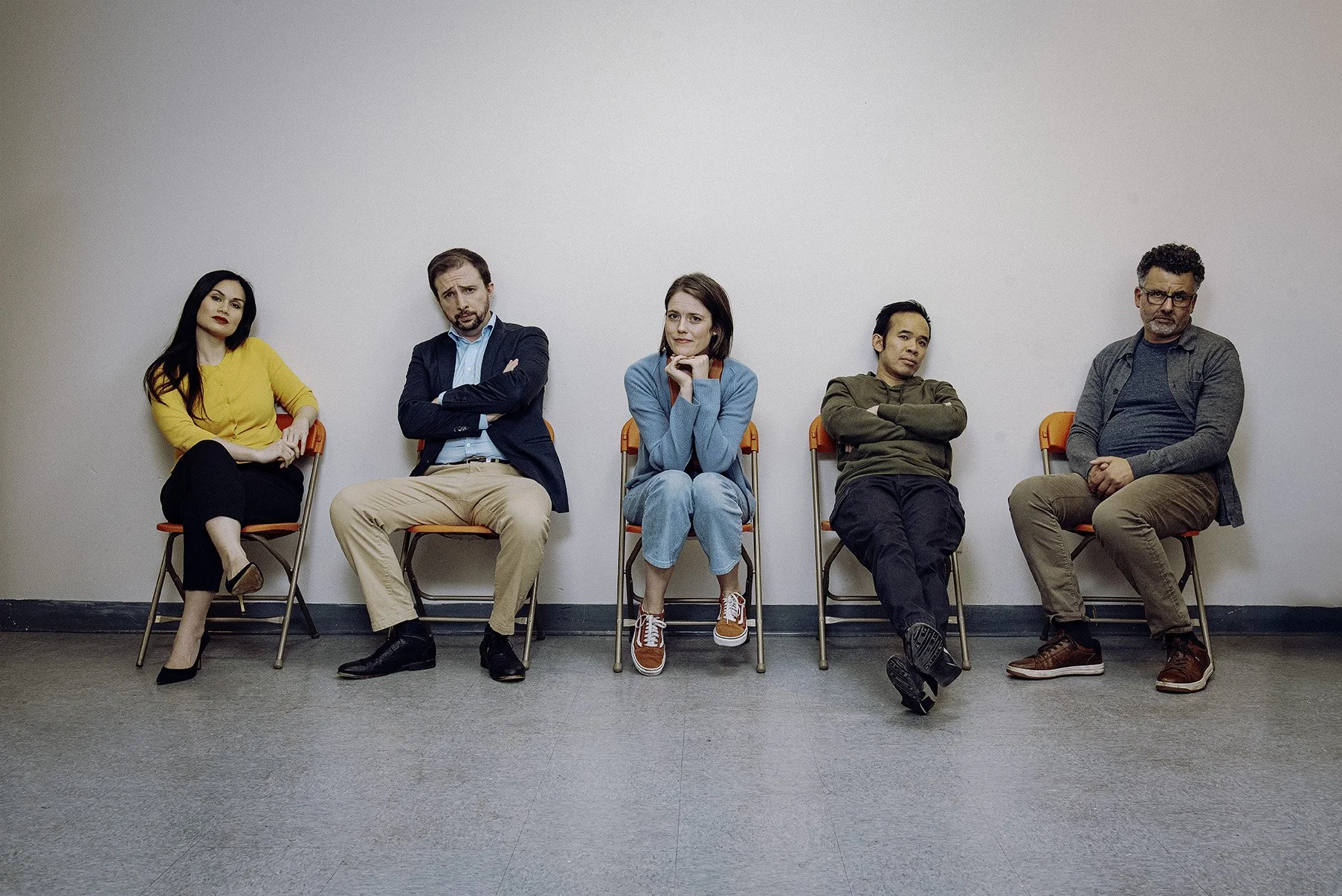
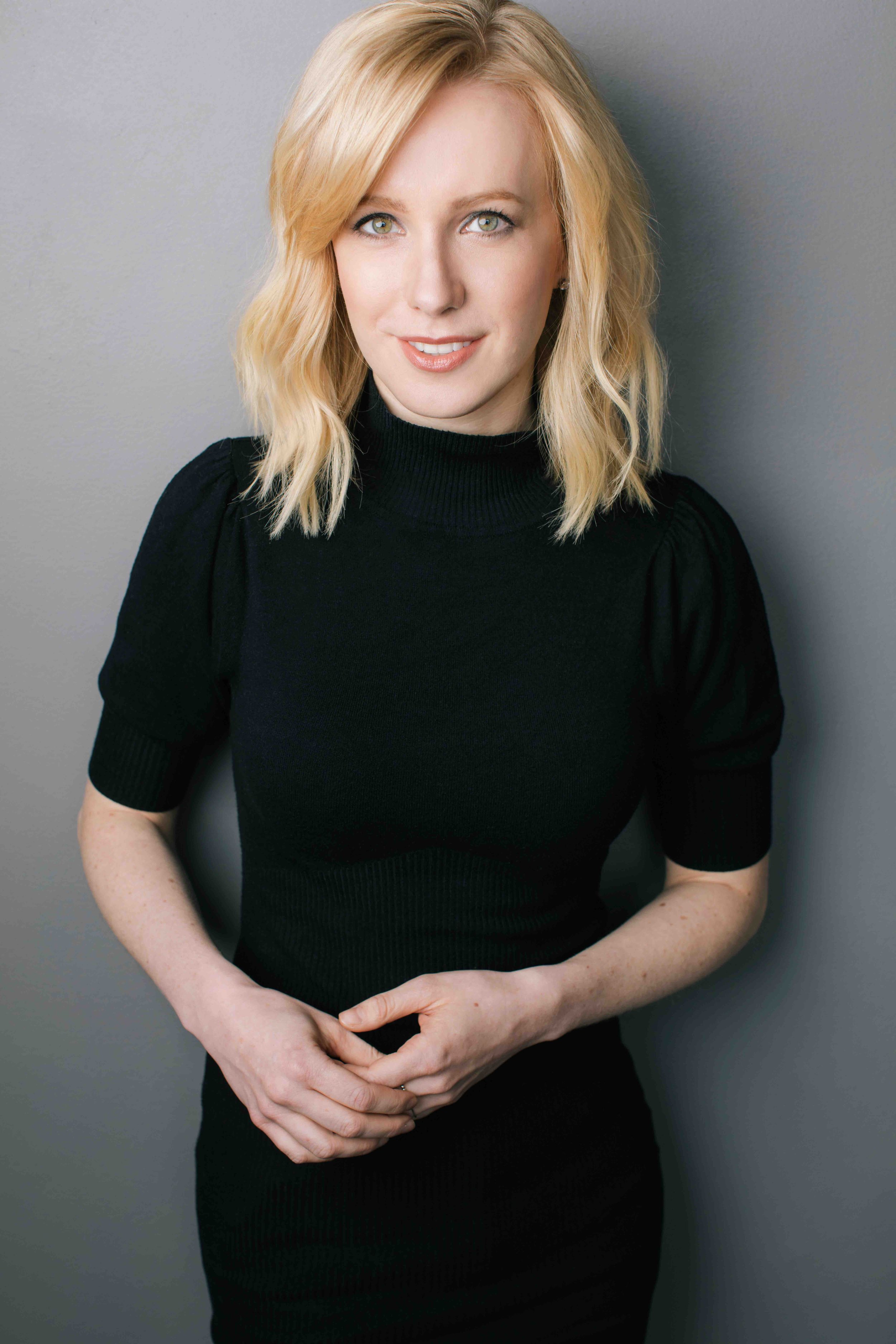

![Theatre review: Complete Works of William Shakespeare (abridged) [revised] [again] takes pleasingly panicked tour of the Bard’s canon](https://images.squarespace-cdn.com/content/v1/5f10a7f0e4041a480cbbf0be/1752776963817-BS2BYYQMLMSGU9OG3E37/Nathan-Kay-and-Craig-Erickson.-Photo-By-Tim-Matheson.jpg)
